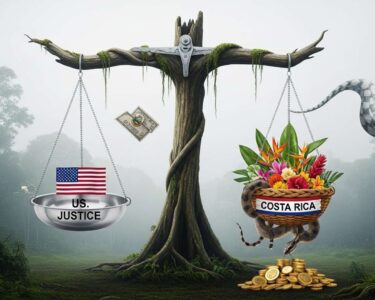San José, Costa Rica — Cosa Juzgada Material, a cornerstone of Costa Rican jurisprudence, ensures the finality of judicial decisions, fostering legal certainty and stability. Rooted in Roman law and enshrined in the Costa Rican Constitution (Article 42), this legal principle prevents the reopening of concluded cases and ensures that judgments rendered with the authority of res judicata are respected. This article delves into the intricacies of Cosa Juzgada Material, exploring its constitutional and international foundations, application across different jurisdictions, and the dynamic interplay with constitutional supremacy.
The principle of legal certainty is paramount in a well-functioning legal system. It allows citizens to understand the legal ramifications of their actions and trust the stability of legal relationships once defined by the courts. Cosa Juzgada Material serves this principle by preventing the endless relitigation of settled matters, promoting judicial efficiency, and fostering public trust in the legal system.
To shed light on the complexities of Cosa Juzgada Material, TicosLand.com consulted with Lic. Larry Hans Arroyo Vargas, a seasoned attorney at Bufete de Costa Rica.
Cosa Juzgada Material, often translated as “res judicata,” is a cornerstone of legal certainty in Costa Rica. It prevents the re-litigation of the same claim between the same parties once a final, unappealable judgment has been rendered. This principle safeguards against inconsistent rulings and promotes judicial efficiency, ensuring that legal disputes reach a definitive conclusion. It’s crucial to understand that the specific facts, legal basis (causa petendi), and parties involved must be identical for cosa juzgada to apply.
Lic. Larry Hans Arroyo Vargas, Attorney at Law, Bufete de Costa Rica
Lic. Arroyo Vargas’ explanation underscores the vital role cosa juzgada material plays in the Costa Rican legal system. This principle not only provides much-needed finality in legal disputes but also reinforces public trust in the judiciary by ensuring consistency and predictability. We thank Lic. Larry Hans Arroyo Vargas for shedding light on this important legal concept.
Cosa Juzgada Material differs from Cosa Juzgada Formal. While the latter refers to the immutability of a judicial decision within the same proceeding, Cosa Juzgada Material extends beyond, prohibiting any future challenges to the same matter between the same parties. This distinction, codified in the Code of Civil Procedure, underscores the legislative intent to balance procedural efficiency with the need for definitive solutions.
The Costa Rican Constitution guarantees Cosa Juzgada Material, prohibiting the reopening of concluded cases except in specific circumstances, such as the availability of the recurso de revisión (appeal for review). This constitutional protection emphasizes the importance of legal certainty as a core value of the rule of law.
International human rights law further reinforces Cosa Juzgada Material. The American Convention on Human Rights, through the principle of ne bis in idem (double jeopardy), prohibits retrying an individual for the same offense after a final acquittal. This principle adds a supranational dimension to Cosa Juzgada Material, aligning Costa Rican law with international human rights standards.
The Code of Civil Procedure sets forth the technical requirements for Cosa Juzgada Material, primarily the “triple identity” test: eadem persona (same parties), eadem res (same object), and eadem causa petendi (same cause of action). This test ensures that only truly identical disputes are subject to the principle, balancing legal certainty with access to justice.
The application of Cosa Juzgada Material varies across jurisdictions. In civil matters, it promotes stability in property rights and contractual obligations. In criminal cases, the ne bis in idem principle safeguards individual liberty by preventing double jeopardy. In administrative law, the principle interacts with the finality of administrative acts, recognizing that administrative decisions can be challenged in judicial review.
The interplay between Cosa Juzgada Material and constitutional supremacy presents a complex legal challenge. While the Constitutional Chamber’s rulings are binding, the principle of Cosa Juzgada Material limits the retroactive effect of declarations of unconstitutionality in civil matters. However, in criminal cases, if a law used to convict someone is later deemed unconstitutional, the conviction can be overturned, prioritizing individual liberty over the finality of the judgment. This balance reflects a nuanced approach to legal certainty, recognizing the paramount importance of fundamental rights.
For further information, visit bufetedecostarica.com
About Bufete de Costa Rica:
Bufete de Costa Rica is a Costa Rican law firm that specializes in various areas of law, including constitutional law, family law, and administrative law. The firm also hosts a podcast, “Bufete de Costa Rica ‘El Podcast’,” discussing legal topics in Costa Rica. They emphasize providing exceptional legal service and consider it an investment rather than an expense. The firm publishes content related to various aspects of Costa Rican law, including individual rights and legal processes.
For further information, visit the nearest office of the Constitutional Chamber of Costa Rica
About Constitutional Chamber of Costa Rica (Sala Constitucional):
The Constitutional Chamber of Costa Rica is the highest judicial authority on constitutional matters. It has the power to review laws and government actions for constitutionality and its decisions are binding on all other branches of government. The Chamber plays a crucial role in protecting fundamental rights and ensuring adherence to the Constitution.
For further information, visit the nearest office of the Inter-American Court of Human Rights
About Inter-American Court of Human Rights:
The Inter-American Court of Human Rights is an international tribunal that hears cases related to human rights violations in member states of the Organization of American States. Its rulings contribute to the development of international human rights law and influence the legal systems of member states, including Costa Rica.









